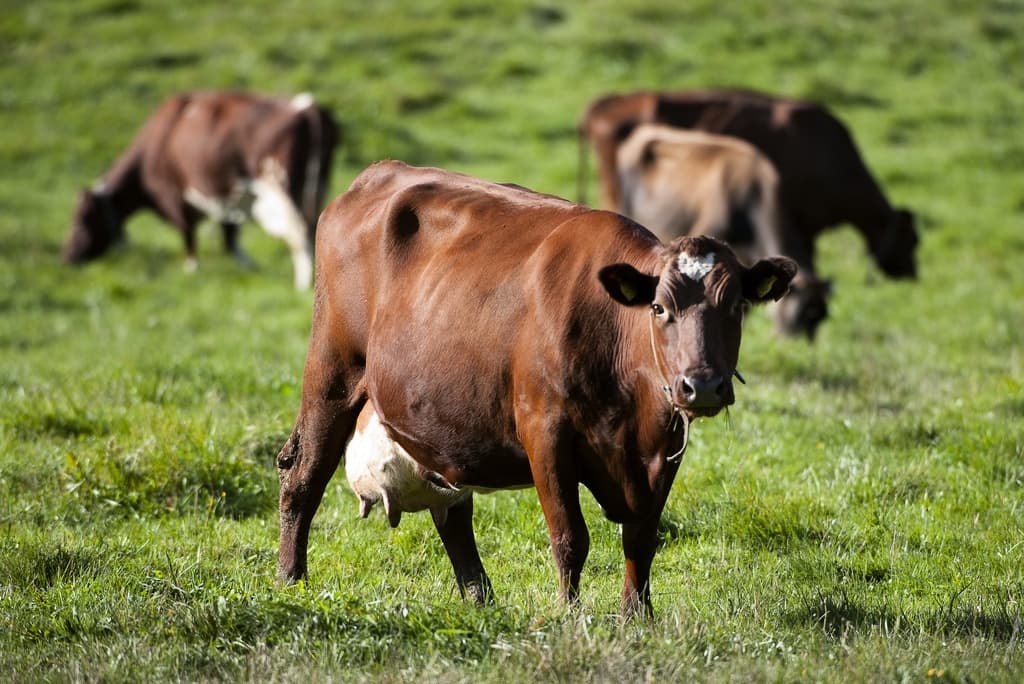Since 1988, it has been written into law that dairy cows must have access to green pasture in the summer. A law that Astrid Lindgren contributed to getting in place.
However, the grazing law hinders the development of Swedish milk production, according to the investigator. She therefore proposes to abolish the grazing requirement for cows in loose housing, i.e., for cows that can move freely indoors.
Milk producers with cows in loose housing should be able to decide for themselves when and if their animals should graze.
Many will continue to keep their animals on pasture, others not, says Nilsson.
Stricter than the EU
Swedish animal welfare regulations are in many cases stricter than what the EU requires and are often highlighted as something positive – the animals are healthier and antibiotic use is low. But it is also costly and the question is how much extra consumers are willing to pay for high animal welfare.
So what would Astrid Lindgren have thought about abolishing the grazing requirement?
I think Astrid Lindgren would be dismayed that nine out of ten dairy farms are gone today and that we have almost halved the number of dairy cows, says Minister for Rural Affairs Peter Kullgren (KD).
I don't think she would like that either.
The investigator notes that Swedish cowsheds look different today than when Astrid Lindgren campaigned for cows on green pasture. Back then, it was standard for cows to be tied up indoors, which is not the case today.
The question is, however, whether the proposal will become a reality. The Liberals say no to abolishing the grazing right.
The party's stance, and our starting point in the negotiations, is that the cows' right to graze should not be worsened, says Elin Nilsson, responsible for animal welfare issues in L.
"Absurd and un-Swedish"
The Social Democrats are also critical.
"It's an absurd and un-Swedish proposal. Cows should of course have the right to green pasture", says rural policy spokesperson Anna-Caren Sätherberg (S).
The Green Party believes that the proposal could be counterproductive.
One of the reasons consumers want to buy Swedish-produced is that we know we have higher standards when it comes to animal welfare. If you take that away, there's no reason to buy Swedish, says Emma Nohrén (MP), chair of the Environment and Agriculture Committee.
The Sweden Democrats are backing the current legislation on grazing requirements for the time being, but also think it's important to increase food production.
So we're not going to dismiss or criticize the proposals before we've examined the investigation and taken part in the referral responses, says SD's agricultural policy spokesperson Martin Kinnunen.






